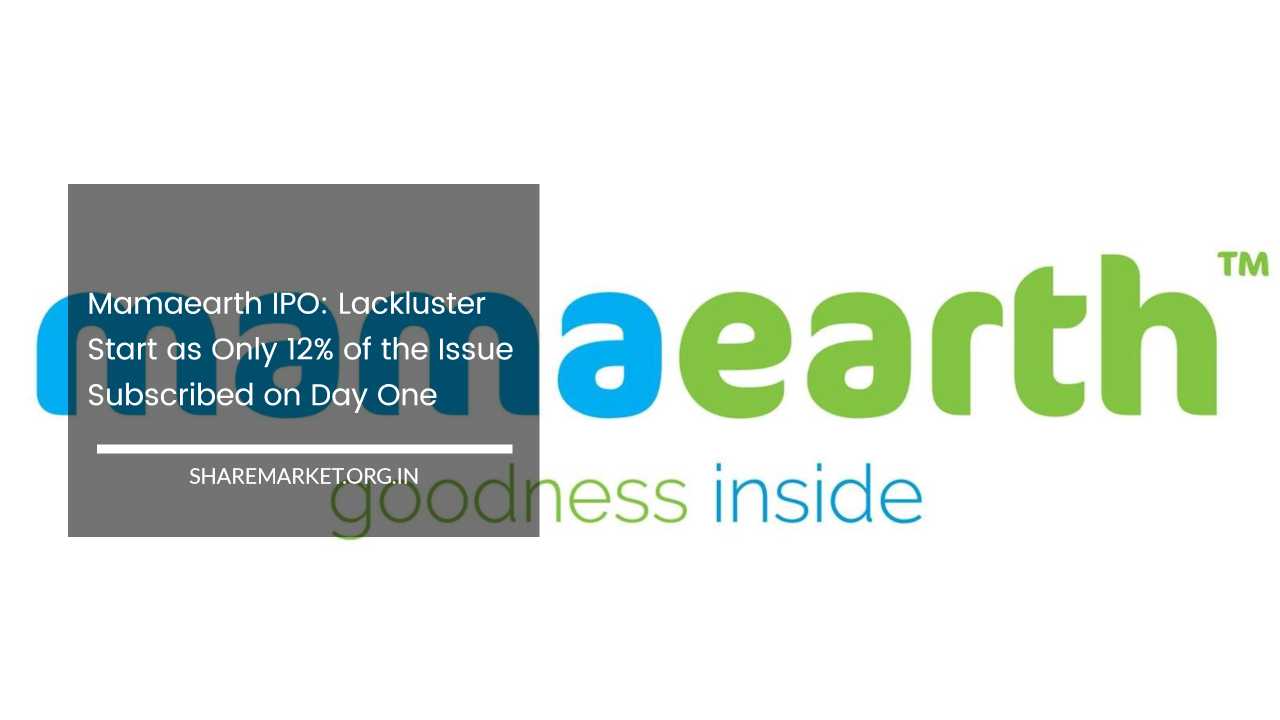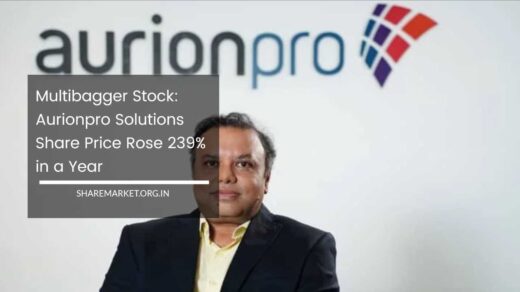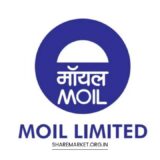Mamaearth IPO: Lackluster Start as Only 12% of the Issue Subscribed on Day One

Mamaearth IPO
Mamaearth Parent Company’s IPO: Lackluster Start on Day One
The initial public offering (IPO) of Honasa Consumer, the parent company of popular personal care brand Mamaearth, has kicked off with a less-than-impressive response from investors on its first day.
As of the initial subscription period, only 12 percent of the total issue has been subscribed. This raises questions about market sentiment and the company’s valuation.
In this detailed analysis, we’ll delve into various aspects of the IPO, including subscription details, allocation structure, important dates, and the company’s plans for utilizing the funds raised.
Subscription Details: A Slow Start
On the first day of the subscription period, the Honasa Consumer IPO received bids for 36.08 lakh shares, while there are 2.88 crore shares on offer.
This sluggish response from investors has cast a shadow of doubt over the IPO’s success. The subscription period for this IPO remains open until November 2, giving potential investors ample time to consider whether to invest in this Rs 1701 crore offering.
The price band for the shares has been set at Rs 308-324, with a lot size of 46 shares. Additionally, employees are entitled to a discount of Rs 30 on each share, which may serve as an enticing incentive for them.
Subscription Breakdown: Who’s Investing?
Breaking down the subscription details, we find that Qualified Institutional Buyers (QIBs) have subscribed to 10 percent of the issue, while non-institutional investors have shown interest in 3 percent.
Retail investors, often considered the heartbeat of the stock market, have subscribed to 34 percent of the issue, bringing the total subscription rate to 12 percent. These figures indicate a subdued response from both institutional and retail investors.
Unique Allocation Structure
The Honasa Consumer IPO boasts a unique allocation structure with 75 percent of the issue reserved for Qualified Institutional Buyers (QIBs), 15 percent for Non-Institutional Investors (NIIs), and 10 percent for retail investors.
After the IPO’s successful completion, the allotment of shares is scheduled to be finalized on November 7.
Subsequently, the shares are expected to be listed on the Bombay Stock Exchange (BSE) and the National Stock
Exchange (NSE) on November 10. Handling the administrative side of the IPO is Kfin Tech, a prominent name in the field of investor services and share registry.
Utilization of IPO Proceeds: Ambitious Plans
The company aims to raise funds by issuing new shares worth Rs 365 crore, and an additional 41,248,162 shares with a face value of Rs 10 will be sold under the Offer for Sale (OFS) window.
The proceeds from the OFS will be distributed to the selling shareholders, offering them a means to realize some of the value of their investments in Honasa Consumer.
The funds generated from the issuance of new shares will be allocated for various purposes, including advertising, the establishment of new exclusive brand outlets, investments in Bblunt to open new salons, contributions to general corporate objectives, and facilitating inorganic growth.
The Importance of Allocation
The allocation of funds is a critical aspect of the IPO process. The commitment to advertising signifies a focus on increasing brand visibility and market presence.
In the competitive world of personal care products, a strong brand presence can be pivotal in attracting and retaining customers.
Moreover, the investment in new brand outlets signals a desire to reach consumers through physical touchpoints, which can be particularly important in the retail sector where Mamaearth operates.
The investments in Bblunt point to diversification, possibly into the personal care and salon industry. These strategic moves can open new revenue streams and solidify Honasa Consumer’s position in the market.
Financial Health: The Rollercoaster Ride
The financial performance of Honasa Consumer has seen its fair share of ups and downs. In the financial year 2021, the company reported a significant net loss of Rs 1,324.61 crore, raising concerns about its profitability.
However, the following financial year marked a significant turnaround, with a net profit of Rs 14.44 crore. This sudden shift in profitability may raise questions about the stability of the company’s financial performance.
Unfortunately, the positive trend didn’t hold, as Honasa Consumer incurred a net loss of Rs 150.97 crore in FY 2023. This volatility in financial performance can be attributed to various factors, including market dynamics and business strategies.
Therefore, potential investors need to carefully assess the company’s financials and management strategies to determine if they align with their investment goals.
Founder’s Success and Influence: Varun and Ghazal Alagh
The company’s founders, Varun and Ghazal Alagh, gained recognition through their appearance on the television show Shark Tank.
They co-founded Honasa Consumer in 2016, and their journey has been notable for its rapid growth and valuation.
In January 2022, Honasa Consumer secured $52 million in funding, which valued the company at $120 million, making it a part of the prestigious Unicorn Club. This achievement highlights the company’s potential and the investor confidence it has garnered.
The Impact of TV Exposure and Unicorn Status
The exposure on television and the subsequent unicorn status can significantly impact the perception of a company. It can attract a significant following of retail investors who may want to be a part of the success story.
However, it’s crucial for investors to exercise caution and ensure that their investment decisions are based on comprehensive due diligence rather than just the company’s reputation and popularity.
Conclusion: Caution in the Market
In conclusion, the Honasa Consumer IPO’s lukewarm response on the first day of subscription reflects the uncertainty and caution in the market.
The subdued interest from both institutional and retail investors may be due to concerns about the company’s financial stability, the recent fluctuations in its profitability, and the price range of the shares.
While the company’s commitment to expansion and diversification is evident in its allocation of IPO proceeds, investors should carefully assess the company’s financial health, management strategies, and industry dynamics before making any investment decisions.
The company’s founders, Varun and Ghazal Alagh, have certainly made a mark with their entrepreneurial journey and the Unicorn Club inclusion, but market conditions and competition should not be underestimated. Making an informed investment decision is crucial in these uncertain times.

















